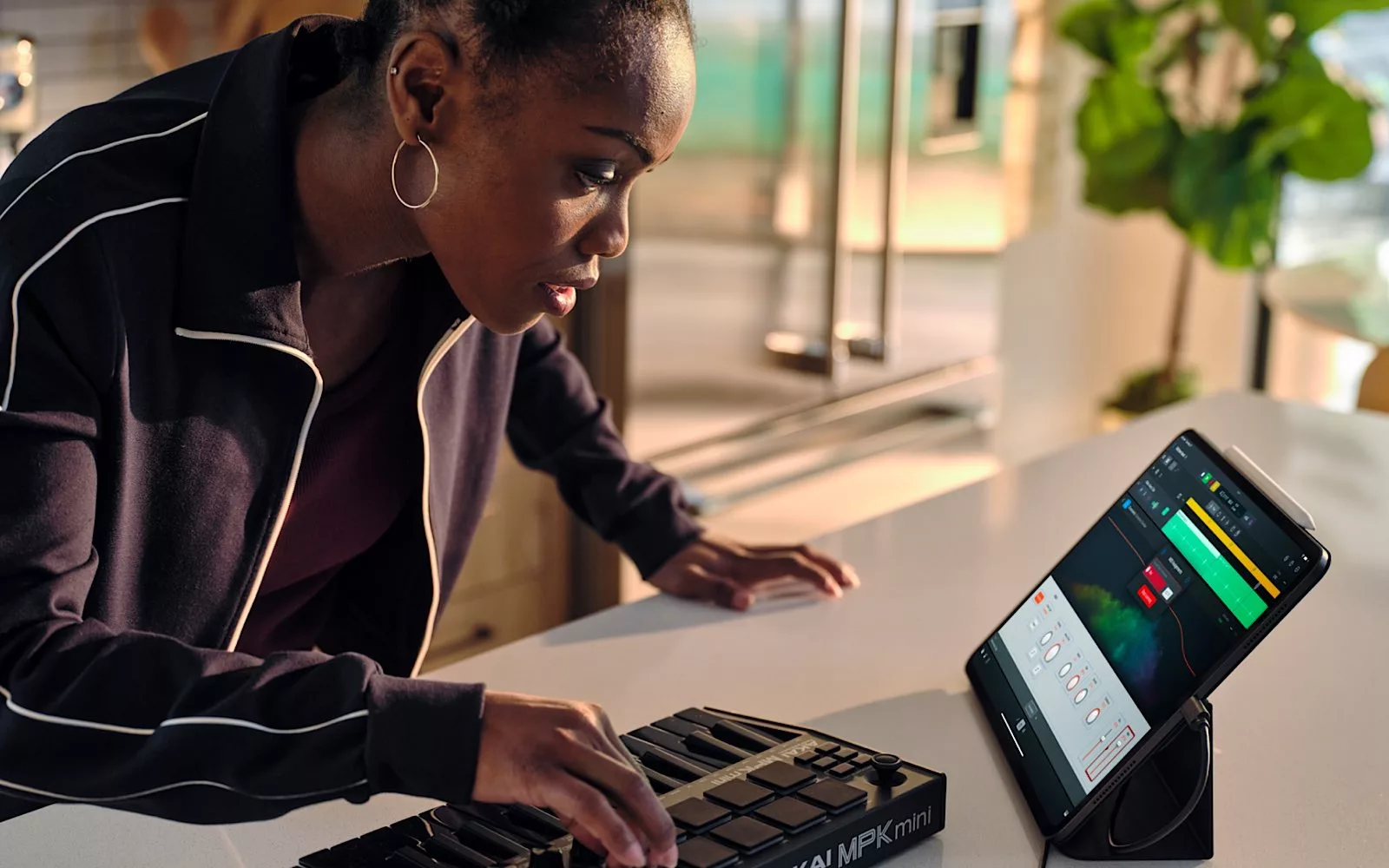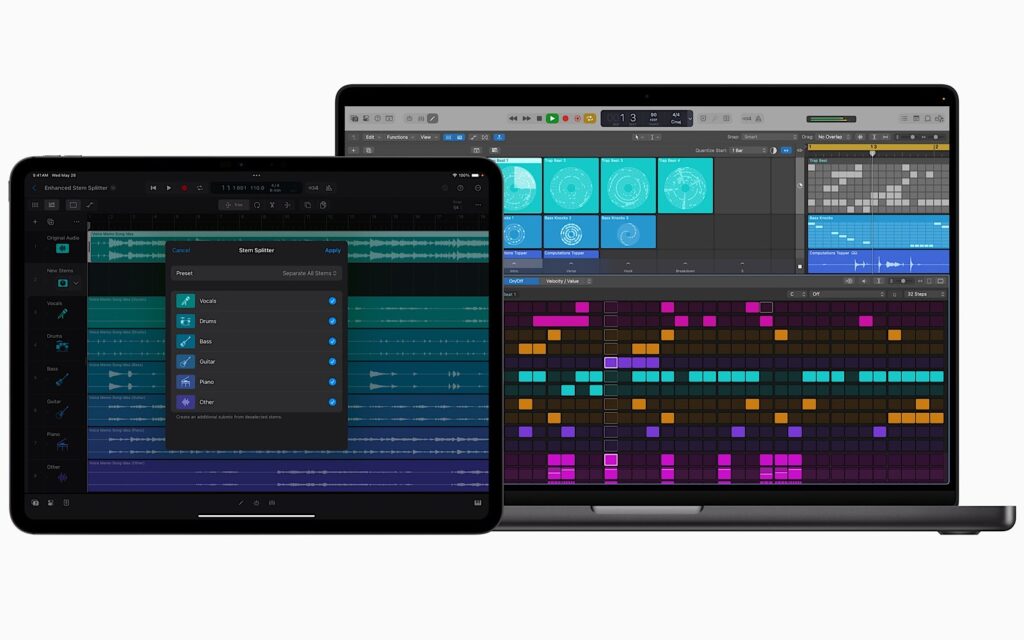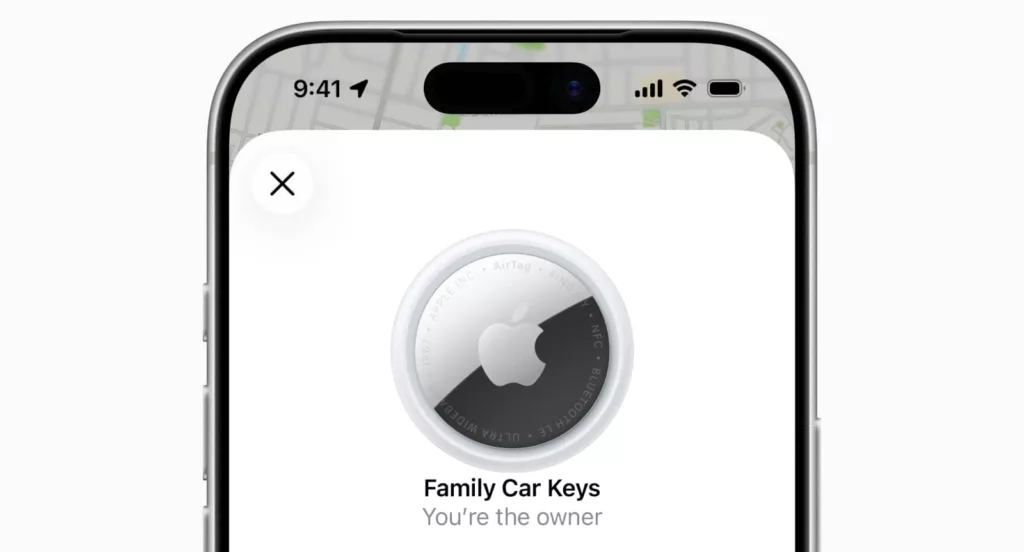The past few years have been kind to musicians looking for ways to turn their computer into a home recording studio, because you don’t really need to head to a dingy room and pay thousands of dollars to lay down a track.
Between inexpensive hardware designed to help you record and software made for computers, phones, and tablets, the next recording needn’t come from an experienced engineer, but rather your own dabble in expertise.
While nothing really takes the place of an engineer who knows their way around a mixing desk and production facility, if you’re looking to do it yourself, there’s plenty out there designed to assist, and this week, Apple’s contributions have a little more going for them.
Logic Pro, the little piece of software that still keeps getting updates all these years later since its initial release back in 1993 (!!!) is getting a few new features for owners of the current generation, which has been getting updates in Logic Pro X, now known as simply Logic Pro. There have been a few over the years, including Dolby Atmos support, not to mention the addition of an iPad app, and now it’s getting a few rather clever additions for the year.
One of them is what is basically an always-on recording studio, as Apple adds “Flashback”. It sounds a little like an 80s film, or even possibly a highly underrated 90s game, but the feature has more in common with car dash cameras that stay recording when you’re not there, or even a video doorbell doing much the same thing.
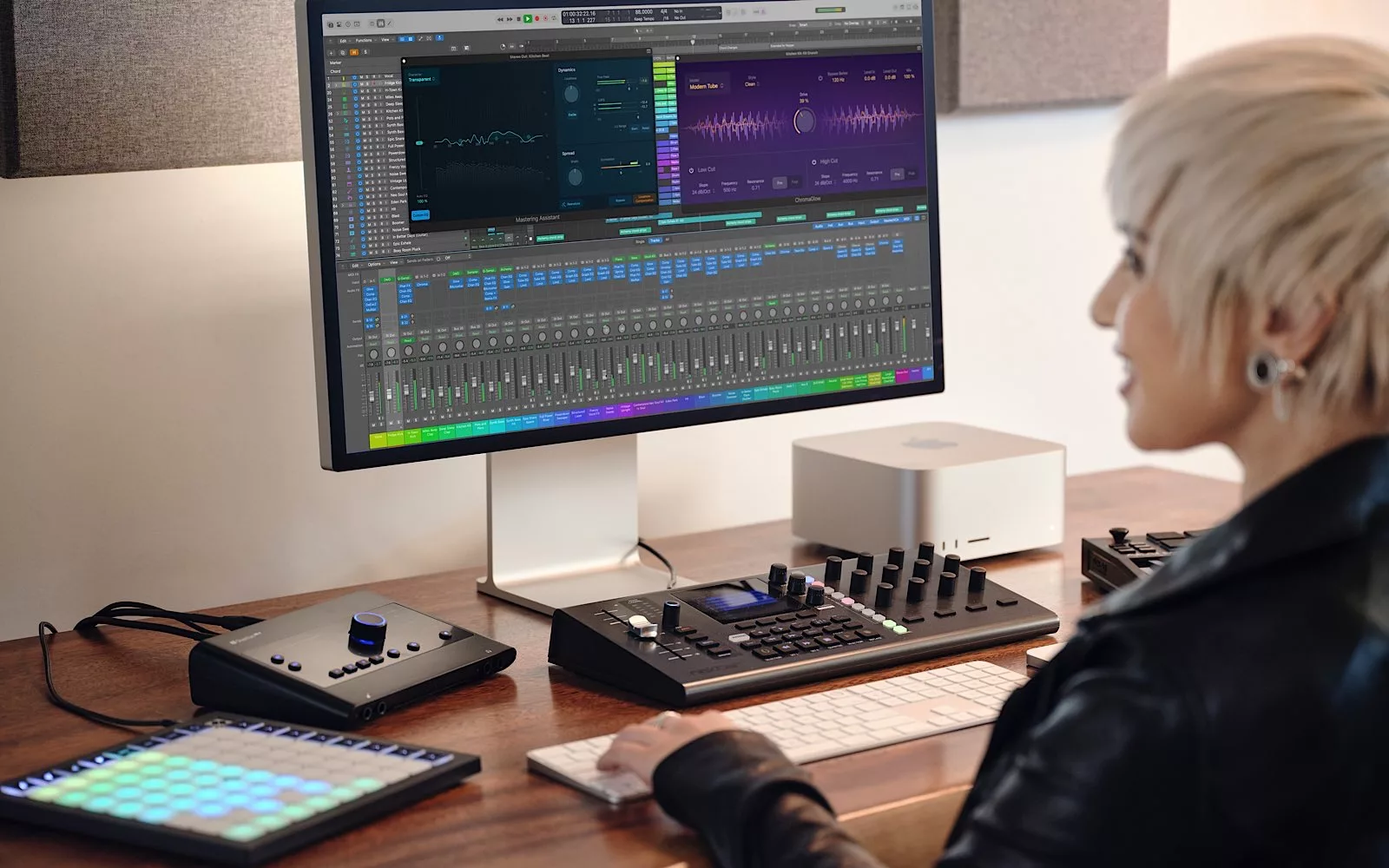
Flashback Capture will essentially use your computer’s mic or the hardware for recording your instrument and stay recording even as you strum or sing. Think of it as the always-on recorder for when you’re just humming something or playing a random song.
It could be a slight take, and will apparently work for as long as your drive can hold the recording and format, but it only works for one take, and is just one button away. Flashback even works with MIDI, allowing pianists and key players to bring back a little riff they’ve concocted without putting too much effort in.
Flashback is just one addition, but one we’re possibly more excited for is an updated to Logic’s Stem Splitter, which takes a recording and uses AI to turn a recording into individual tracks.
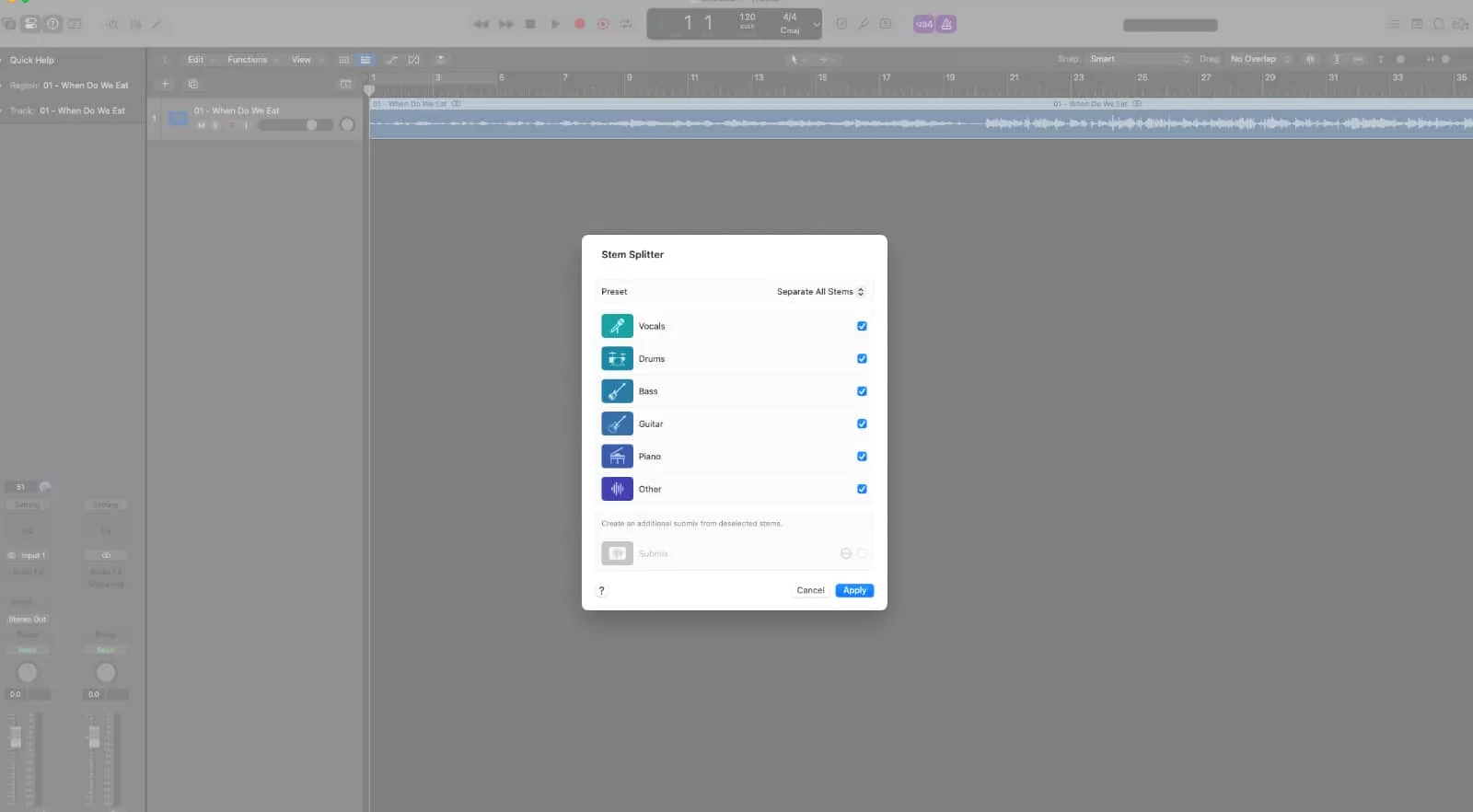
It’s an update to the Stem Splitter Apple released last year, which is now that little bit more powerful, supporting piano and guitar conversions, and even allowing you to select options such as acapella (just voice) or instrumentals.
Testing the updated and enhanced stem splitter against what we used in our AI music reporting last year, Moises AI, we found Apple’s did a slightly better job.
Our David Bowie-inspired AI track “When Do We Eat” saw a slightly tighter vocal conversion than what Moises offered when we converted it to stems last year, and was found directly in the app, no extra service needed. Granted, there’s a difference of a year here, and Apple’s software is using Apple Silicon to make the technology work, which is a requirement of this update, as is macOS Sequoia 15.4.
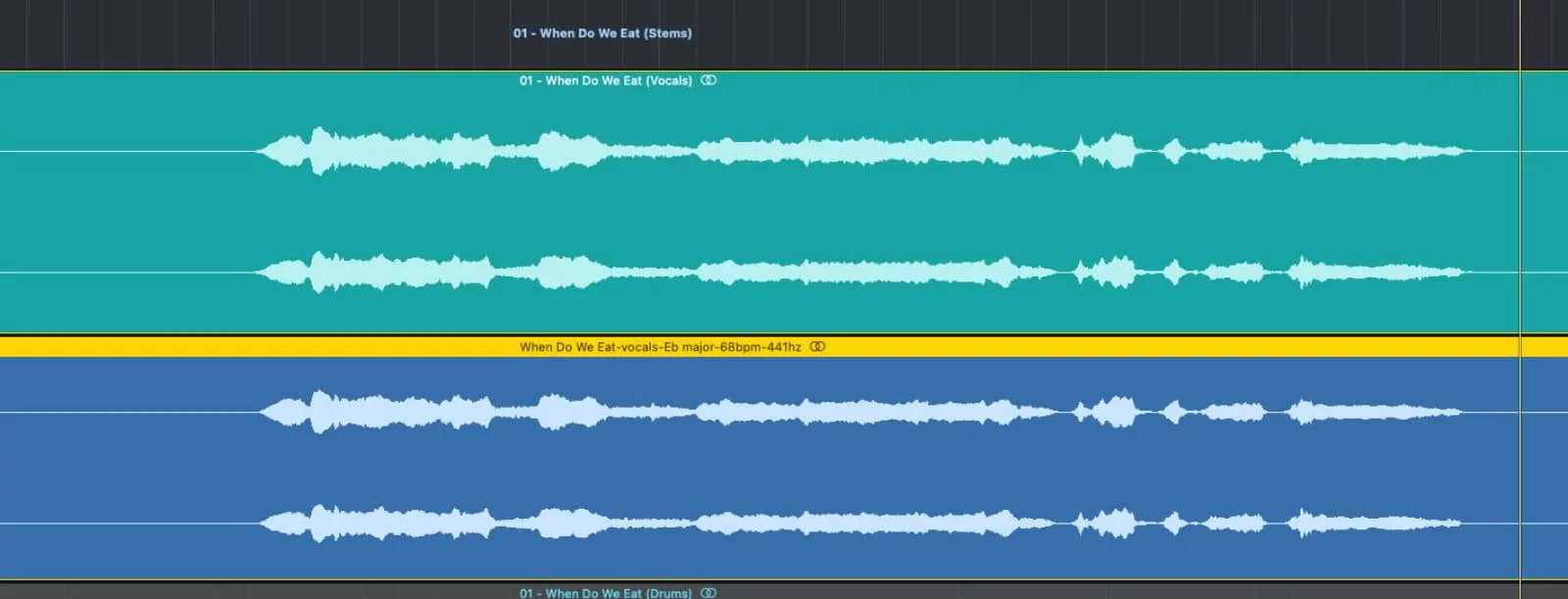
Both of those features are found in Logic Pro 11.2, as is support for Apple Intelligence on the notepad found in Logic. That essentially means ChatGPT’s writing features for creating lyrics, an optional feature you might steer clear of, compared to the support of more sound packs coming to Logic Pro for Mac, which puts it with parity on the iPad version. We wish Apple would offer a store for these sorts of sound packs, as getting packs from other online marketplaces isn’t always friendly, but more free music packs is always nice.
Meanwhile, that iPad edition gets a “Learn MIDI” mode allowing keyboards to talk directly to Logic Pro on the iPad, customising the buttons and knobs and faders so there’s that little bit more control for music.
That feature is something Logic Pro for iPad users will see as a free update, part of the $7.99 per month or $59 per year plan, while the Logic Pro 11.2 update for Mac is also free for current customers, while new purchases will find Logic Pro for $299.99.
